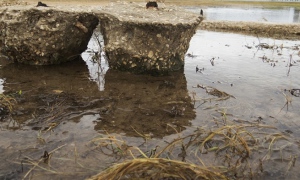On 11 July 1997, the National Assembly of People’s Power approved the Environmental Act which stipulates the necessity of “providing for the right to a healthy environment, as the basic right of the society and its citizens, and for the right to enjoy a healthy and productive life in the harmony with nature.”
At the same time, Article 3 specifies that “it is the obligation of the State, its citizens and the society in general to protect the environment by its conservation and rational use; a constant fight against causes that lead to its damage; acts of environmental rehabilitation; reduction and elimination of environmentally unsustainable production and consumption methods”.

In addition to its 163 articles and countless sections, the Act contains special and final transitional provisions that are all dedicated to the protection of the environment in Cuba. It is also the Constitution of the Republic that obliges the State to protect the environment, requesting all of its citizens to contribute to the protection of water, conservation of land, fauna and all the wealthy potential of the nature.
If all is planned in a theoretical or legal level, how come that we can observe severe attacks against the environment basically anywhere in Cuba and on a daily basis? There are plenty of examples, let us describe at least two of them:
The Almendares River, the most important river of Havana that originated more than 12 million years ago and that José Martí described as one of the clearest in the world, has been a muddy and sickening current for several decades. The Luyano River, on the other hand, has such pungent odour that it is nearly impossible to approach its banks.
Generally speaking, there is no river in Havana and nearly no river in Cuba that would not be highly contaminated. The image of a sweet and clear water current that provides countless benefits to the inhabitants of a region or a country is definitely not the one that persists in the minds of Cubans.
Thanks to its large and extended territory, the island is saved from the air pollution. A great deal of combustion residues released by thousands of old cars navigating through the country, not to speak about the old factories using fossil fuels, are successfully blown out from the national territory by trade winds.
The explicit or implicit excuse about why the majority of the enacted environmental protection provisions cannot be put into practice is somewhat strange: insufficiency of necessary material means, i.e. lack of money.
In 1953, Fidel Castro, having asked where to take money for carrying out programmes that he assured were very necessary, replied: “once the immense resources of the nation are mobilised and no more tanks, bombers and canons are bought in this land without borders…”.
Today we have the law, we have the human resources, we have the money but what we perhaps do not have is something more basic: the will of the citizens to really care about the environment.

Leave a comment